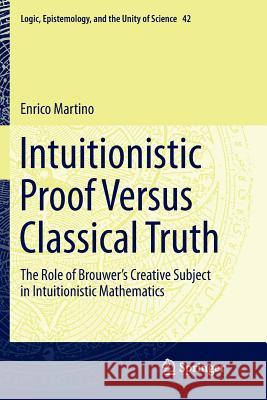Intuitionistic Proof Versus Classical Truth: The Role of Brouwer's Creative Subject in Intuitionistic Mathematics » książka
topmenu
Intuitionistic Proof Versus Classical Truth: The Role of Brouwer's Creative Subject in Intuitionistic Mathematics
ISBN-13: 9783030089719 / Angielski / Miękka / 2018 / 170 str.
Intuitionistic Proof Versus Classical Truth: The Role of Brouwer's Creative Subject in Intuitionistic Mathematics
ISBN-13: 9783030089719 / Angielski / Miękka / 2018 / 170 str.
cena 402,53
(netto: 383,36 VAT: 5%)
Najniższa cena z 30 dni: 385,52
(netto: 383,36 VAT: 5%)
Najniższa cena z 30 dni: 385,52
Termin realizacji zamówienia:
ok. 22 dni roboczych.
ok. 22 dni roboczych.
Darmowa dostawa!
Kategorie BISAC:
Wydawca:
Springer
Seria wydawnicza:
Język:
Angielski
ISBN-13:
9783030089719
Rok wydania:
2018
Wydanie:
Softcover Repri
Ilość stron:
170
Waga:
0.27 kg
Wymiary:
23.39 x 15.6 x 1.02
Oprawa:
Miękka
Wolumenów:
01











